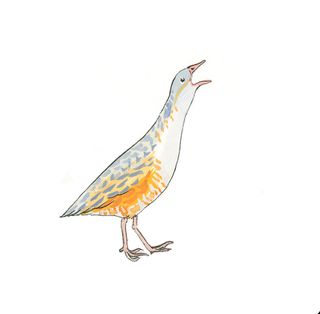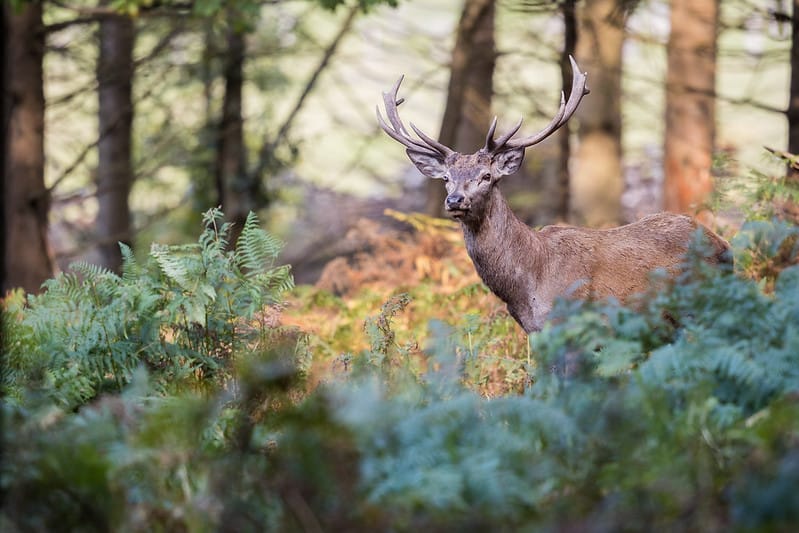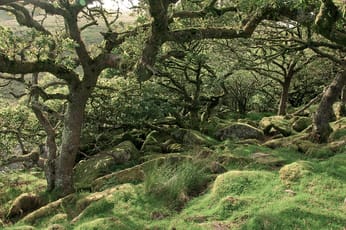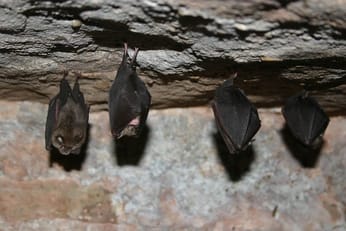
Welsh Sharks & Wildflower Mortuaries
The latest news on nature and conservation in the UK.
National news
Brexit | A coalition of Scottish environmental charities have warned that plans for the UK’s internal market post-Brexit could put Scotland’s biodiversity at risk, while also undermining the nation’s efforts to tackle climate change. The white paper released for consultation by the government last month sets out the policy options around trade following the transition period – but the Scottish charities fear that the results will force “all four nations of the UK to adopt the same standards” irrespective of their environmental needs, and lead to Scotland adopting the “lowest common denominator”, particularly when it comes to bilateral trade deals. Read more on ScotLink.
Peat | Emissions from the UK’s peatlands could cancel the climate benefits of reforestation, according to new analysis by CPRE. The organisation found that approximately 18.5 million tonnes of CO2 will be captured each year if the government meets its tree-planting target of 30,000 hectares per year by 2025. UK peatlands currently emit the same volume of greenhouse gases annually, due to drainage for farmland, combustion for fuel, and removal for fertiliser. The government’s independent Committee on Climate Change agreed with their numbers, reports the BBC, adding that a promised government peat strategy has been delayed.
Grouse moors | As the shooting season gets underway, the Labour party has lent its support to the licensing of grouse moors in an effort to protect persecuted birds of prey, the Guardian reports. The shadow environment secretary, Luke Pollard, accused the government of failing to cut wildlife crime. “A decade of austerity has left these birds vulnerable to poaching, with fewer police preventing poaching and fewer officers able to catch those responsible,” he said. “We need a new approach to protecting and restoring the numbers of these iconic species, with a review into how grouse moors operate and proper licensing in place.”

In other news:
- During lockdown, supertrawlers increased their fishing activity in the UK’s protected waters, reports the Guardian.
- The government is hiring the inaugural chair of its new environmental watchdog, the Office for Environmental Protection.
- A rare area of lowland heath has been destroyed after a fire broke out in Surrey, reports Countryfile.
Across the country
London | A temporary mortuary erected in East London during the height of the coronavirus pandemic is to be transformed into a new wildflower habitat. With the death rate now falling, the City of London Corporation will reseed the four-acre site in Wanstead Flats with native species, including some collected from the nearby Epping Forest, and temporarily put up fences to protect the young plants. It is expected to reopen to the public next summer. The Telegraph and ITV both covered the story.
Dundreggan | A pair of golden eagles have successfully reared a chick at an artificial nest at the Dundreggan “rewilding” estate between Loch Ness and Sky – it is the first chick to fledge successfully at the site in 40 years. The Guardian and BBC report on the story. However, it has not all been positive news for golden eagles this week, with the disappearance of one young eagle, fitted with a satellite tag, in suspicious circumstances on a Scottish grouse moor, the Times reports. Nicola Sturgeon responded to the incident, reports the Scotsman. "Wildlife crime is a priority for Police Scotland,” she said. “The government is in a range of ways reviewing the law and guidance around these issues.”
Anglesey | The RSPB has raised “grave concerns” over a proposed tidal energy project off the Welsh coast. The Morlais Tidal Energy Demonstration Zone off the coast of Anglesey could cause the loss of 60% of breeding guillemots and 97% of breeding razorbills from the sea cliffs at the South Stack nature reserve. “We are calling for the large 240MW scale proposal to be withdrawn and be replaced by a smaller scale initial ‘pilot’ project,” said Katie-jo Luxton, the director of RSPB Cymru. The BBC and the Daily Post both covered the story.
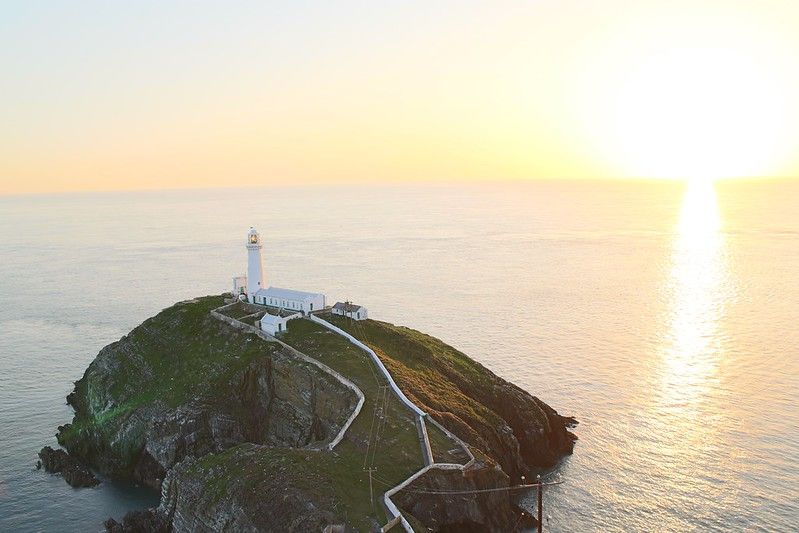
Elsewhere:
- The government has given £2.3m to tackle pollution by “rewilding” farmland – a move that, counterintuitively, will allow further housing development to take place, reports the BBC.
- The large blue butterfly has returned to a site in the Cotswolds for the first time in 150 years, reports the Guardian.
- Norfolk’s new nature movement, WildEast, is reigniting the debate over whether lynx should be introduced to the countryside, reports the Eastern Daily Press.
- The lesser water plantain has been found in “the best ditch in Somerset” – the first time it has been recorded in the county since 1914, reports the BBC.
- An area of the River Wharfe is being considered for bathing water status by the government, reports the Yorkshire Post.
- Norfolk anglers are angry about a plan to improve water quality in the Broads, saying it will prevent fish from migrating, reports the Eastern Daily Press.
Reports
Sharks | The Welsh government has released a five-year action plan to save the angelshark, a critically endangered species that still lives along the Welsh coast. The report looks at possible threats to the shark, including accidental bycatch and habitat loss, and a vision for their better understanding and recovery. “This species has significant scientific and cultural importance to Wales and is listed as the fifth most Evolutionarily Distinct and Globally Endangered shark in the world, representing a distinct branch of the tree of life,” said Joanna Barker, who managed the project.
Conservatives | A group of moderate Conservative MPs, known as the “One Nation” group, have released a report outlining their vision on how to “build back greener” in the wake of the pandemic. A series of essays, written by six MPs, cover topics such as carbon pricing, electric vehicles and cycling. A chapter on greenhouse gas removal, written by Anthony Browne, looks at the potential for nature-based solutions. “The Government should monitor and report carbon sequestration in soil, and promote policies to increase it under an overarching strategy with targets,” he writes. You can read the report in full; the Guardian has also written a story on it.
Science
Fish | Scientists have modelled the impacts of various climate change scenarios on commercially important fish species throughout the 21st century, focusing on the Celtic Sea, English Channel and southern North Sea. The findings suggest that rising temperatures will increase the availability of warm-adapted species like red mullet, Dover sole, John dory and lemon sole, but decrease the abundance of cold-adapted species like Atlantic cod, monkfish and megrim. The Independent has covered the study.
Driftwood
Rivers | George Monbiot is meant to be on holiday, but he has been sidetracked by the state of the nearby river – and no wonder. “In hot weather, the entire river stinks of chicken shit, from the 10 million birds being reared in the catchment. We made the mistake of swimming in it: I almost gagged when I smelled the water,” he writes. This article is a powerful indictment of the state of Britain’s rivers and of the industries – water companies and farming – that have caused their decline. Read it in full in the Guardian.
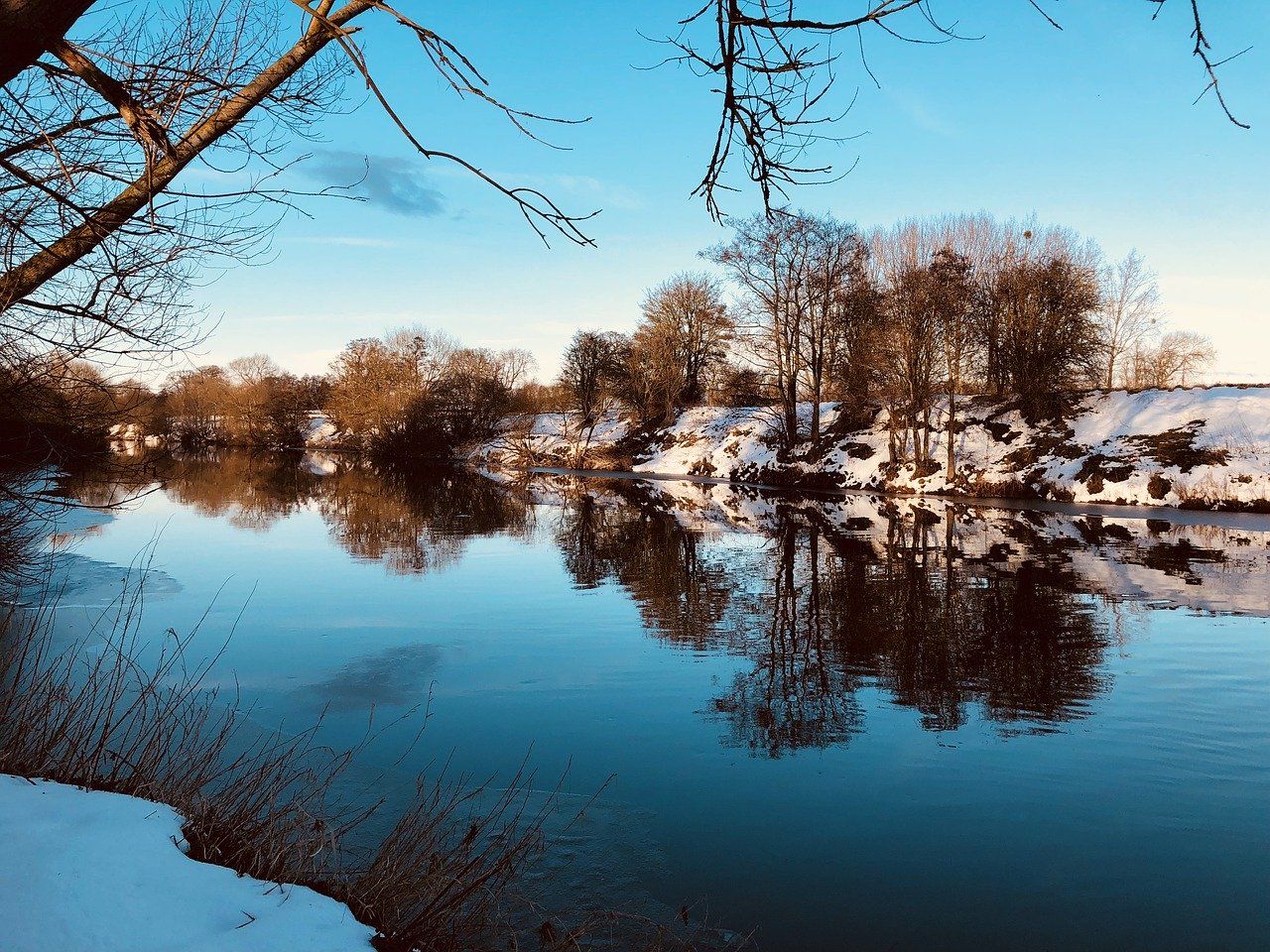
Native | Some of you may recall that, a couple of months ago, I wrote an article about the language surrounding non-native species – it provoked quite a debate. Anyway, that article was responding to an essay on racism and belonging by the black organic grower, Claire Ratinon. She has now published her own reflection specifically on the language issue. “Before you tell me that the language and concepts around ‘non-native’ belong to ecology but not to prejudice, I’d urge you to consider whether the racists and eco-fascists see it the same way,” she writes. I urge you to read her latest essay in full.
On the verge | The Scottish Wildlife Trust has published a fascinating blog on its management of perhaps the most underappreciated of wildlife habitats: road verges. “If you put all of the UK’s road verges in one place, they would combine to create an area of 200,000 hectares – roughly the size of Nottinghamshire. That’s a lot of land. Unfortunately though, we don’t tend to look after verges in a way that maximises that potential,” writes Patrick Endall, a ranger at the Falls of Clyde. This is a good briefing on what these oases could become if they are managed for nature.
Further reading:
- Conservationist Steve Jones looks at how to create more “New Forest” style environments in the UK in his blog, Natural Areas.
- Andrew Clayton, from the Pew Trusts, looks at how the UK can promote sustainable fisheries in the wake of Brexit.
- Watch Rewilding Britain’s interview with its chief executive, Rebecca Wrigley, to learn about the next big plans for the organisation.
- The British Ornithologists’ Union has launched its Rainbow Blog series, where LGBT people share their experiences in ornithology; the first is by a trans man.
- Tony Juniper, the chair of Natural England, muses on reintroductions for the BirdFair blog.
Happy days
Books | Who doesn’t love a list? Vogue has ten suggestions of books that will help you connect to nature. There are some I’ve read, some I’ve been meaning to read, and others I had never heard of. I’ve heard it’s pretty hot down south, which sounds like a perfect excuse to read some of these in a garden or park. Don’t forget to wear suncream.
Jobs
Just a reminder that I will be starting a jobs section in this newsletter within the next couple of weeks (I sent out a sneaky extra email about this on Monday, if you want to read more about that). Reply to this email if you’re hiring and want more details on how to feature your position.
Image credits: Rawpixel Ltd, Sandy Stevenson, Andrew Woodvine, Andie Jordan
Subscribe to our newsletter
Members receive our premium weekly digest of nature news from across Britain.
Comments
Sign in or become a Inkcap Journal member to join the conversation.
Just enter your email below to get a log in link.

